I have received many emails in the last couple weeks from people asking me how I became a dog trainer. Rather than respond to each one individually, I thought I’d share this information with everyone, in case others are thinking of a career change.
Related: SpiritDog Online Training Review: Is It Worth The Price?
There are many roads to becoming a dog trainer. Which path you choose will probably be determined by a few factors, including time and money you have to spend, what type of dog training you want to do, and your overall, long-term career goals.
Someone who wants to work with military war dogs will have a vastly different career path than someone who wants to teach basic obedience to family dogs. Or maybe you want to run your own dog rescue. The possibilities are staggering and it’s good to have a plan before you start (not that you won’t or shouldn’t change it down the road, but it gives you a place to start).
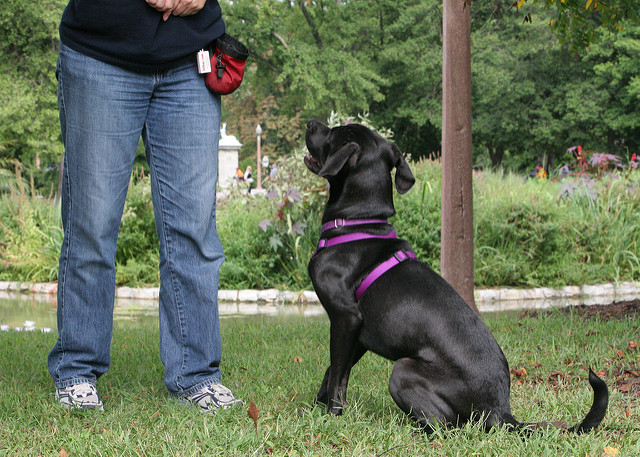
My Story
To begin, I will tell you how I became a dog trainer. I have had animals all my life. This includes cats, birds, dogs, horses. If it has fur (and sometimes feathers and scales), I have probably owned it at some point.
For my twelfth birthday my mom gave me an Aussie puppy – the first dog that was all “mine.” Being 12, I taught Bear all the “important” things like sit, shake, speak, and roll over. He was a good ‘ol dog, but at that time the idea of making a living with anything having to do with animals was not even talked about, save being a vet, and I don’t do blood.
After I got my Master’s degree (MBA), I thought I wanted to do public relations, but I hated office life. Didn’t matter if I was working for a pet company, I just couldn’t stand it. So I quit my job and didn’t know what I wanted to do, aside from continue to pay the bills.
At the time I had a very shy Sheltie and since I found myself with free time, I decided to take her to a class that was for dogs with fear issues. I think it was the first or second class when the trainer approached me (she happened to be the owner of the doggy daycare facility where the class was held) and asked if I would want to train dogs.
Ummm….yes? I went home that night and told my husband that I was applying for a job at a doggy daycare and was going to learn to train dogs. Luckily for me, my husband is a vet assistant so he said, “okay.”
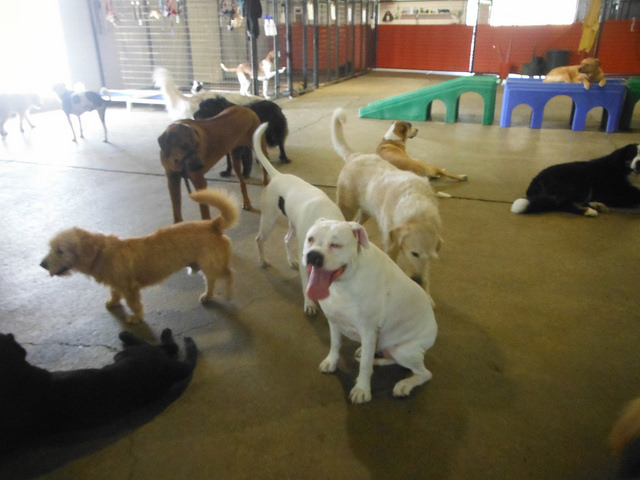
I worked in the daycare for about a year while learning to train from the training manager. Then I switched to training full-time and became certified through the Certification Council for Professional Dog Trainers (CCPDT).
The daycare was a great place to learn because I saw so many different breeds and ages of dogs with so many different personalities and behavioral issues. It was a great place to learn about canine body language as well. Most days I trained 10 or more dogs and also taught group classes (my personal favorite).
Currently, I am working on opening my own facility with a non-profit element focusing on making rescue dogs more adoptable through training and to help keep dogs that have been adopted from being returned to the shelter due to behavior problems.
But that was my path. Yours will probably look very different. And it should.
College
If you are in high school and thinking about college (or thinking about returning to school), I highly recommend an animal behavior or science degree with a minor in business. If I ever have the money, I would love to go back and get an animal behavior degree!
Why business you may be asking? Most dog trainers are business owners! Having that knowledge can really help you learn to be successful on the business side. Look for schools that are accredited, they have more prestige and you can use federal student loans to attend them. Here is a list of a few colleges with good degree programs:
- Tufts University
- Cornell University
- Hunter College
- University of Maryland
- University of Pennsylvania
- Auburn University
- Michigan State University
- Purdue University
- Texas A&M University
- Oregon State University
- University of California – Davis
- University of British Columbia
Depending on your career goals, you may stop here. Or, if you are interested in research or becoming a certified canine behaviorist, you will need a Master’s degree. Some even receive PhD’s such as Dr. Sophia Yin (veterinarian with a degree in Animal Behavior) and Dr. Patricia McConnell (PhD In Zoology).
Vocational Schools
There are also vocational schools that can teach you the basics of dog training and behavior theory without the expense of an accredited four-year college. Beware, however, that you might not be learning the latest or most effective techniques, and many of them teach “all methods” of training, including correction. So thoroughly investigate the program before making a decision about whether it’s right for you.
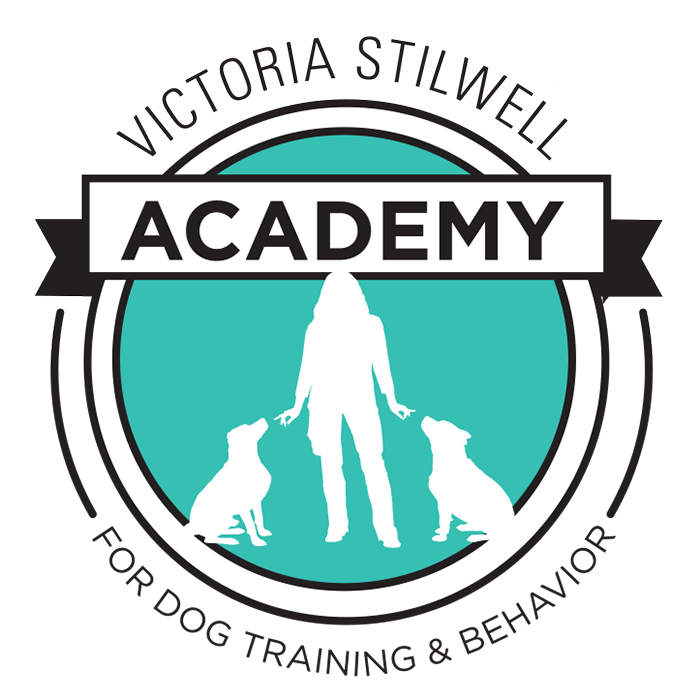
Here are some of the more well-known:
- Victoria Stilwell Academy (positive reinforcement only)
- Karen Pryor Clicker Academy (positive reinforcement only)
- Animal Behavior College
- Penn Foster
Apprenticeship
Regardless of what type of education you get, you should find an excellent trainer (or trainers!) to shadow. Hands-on experience is a must when it comes to working with dogs. This will also help you be sure this is what you want to do with your life.
It is not an easy job. There are safety risks, human emotions are often running high, and sometimes you are faced with very tough decisions. This will also give you experience dealing with clients because you will be dealing with people! This is not a job for someone who does not like human interaction. You are training the owners just as much as you are the dogs!
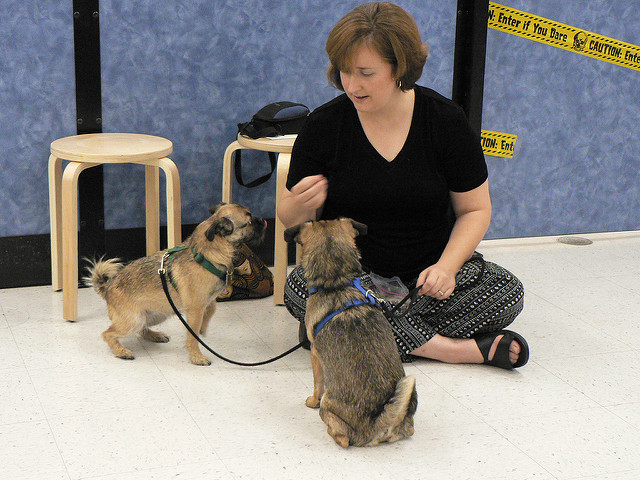
Most of the aforementioned vocational programs have a mentor/apprenticeship element in the program. Otherwise, you can contact local dog trainers in your area that have methods you want to learn and see if they are willing to take on an apprentice.
Certification
As I mentioned, I am a Certified Dog Trainer through the CCPDT. They are the largest certification organization and I definitely recommend passing their test and getting certified, even if you go through one of the vocational schools and get their certificate. The CCPDT has a lot of resources it gives its members, including being listed on the site, and it shows you are serious about your profession.
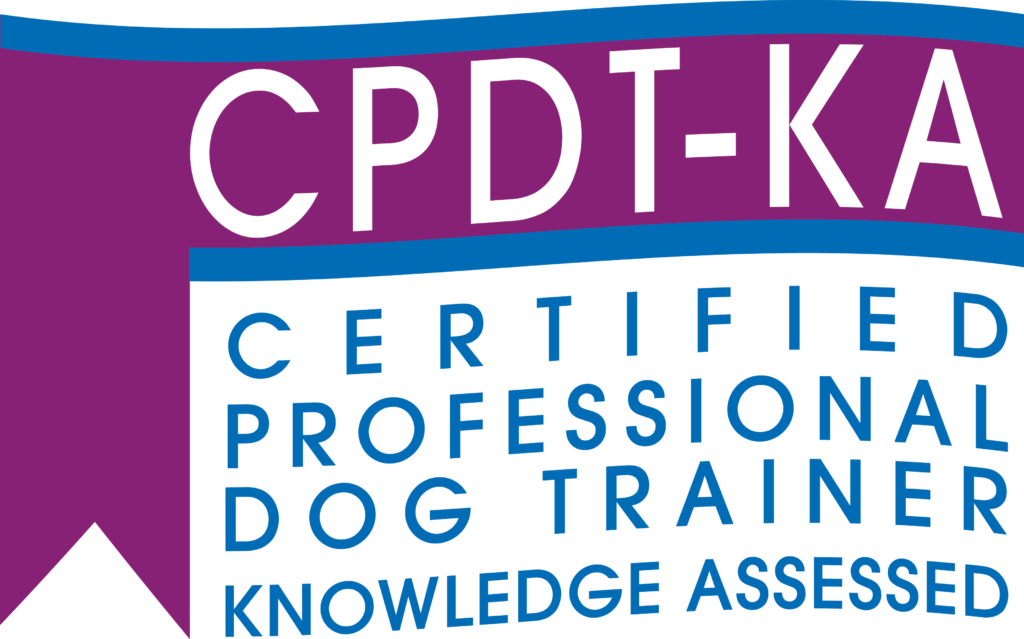
It also shows you are dedicated to keeping up on your knowledge and learning, because you need to complete CEUs (continuing education units) every three years to keep your certification. I also recommend joining the Association of Professional Dog Trainers (APDT) because they have a lot of resources to help, from business planning to continuing education courses, not to mention their amazing yearly conference.
Specialty
Finally, after all your schooling and working with dog trainers in different settings, you have probably decided what type of dog training you want to do. As mentioned, there are many choices from training service dogs to agility dogs, to heading the training department at a dog shelter.
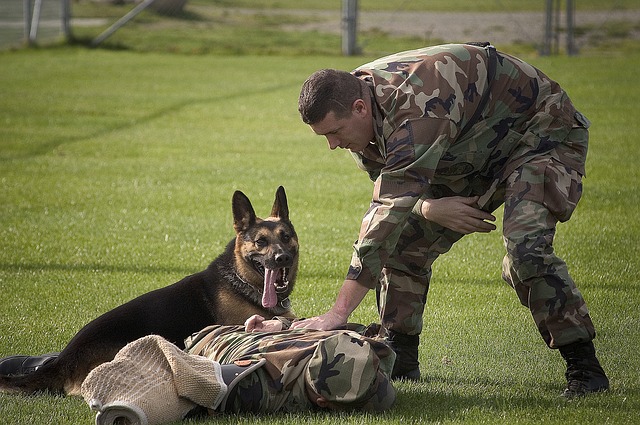
Once you have decided on your niche, you can decide if you need more education or learning.
For example, in order to each agility, you are going to need to know how to do it, and preferably you have competed yourself and won some titles. Meeting other trainers that teach in the niche you are interested in can help you find out how they got where they are and they can give you opportunities to learn the skills you need to get there, too.
Above all, remember why you are doing this and don’t lose sight of your goals. It’s okay if they change, but staying focused will help you be successful.
 Toledo, United States.
Toledo, United States.
